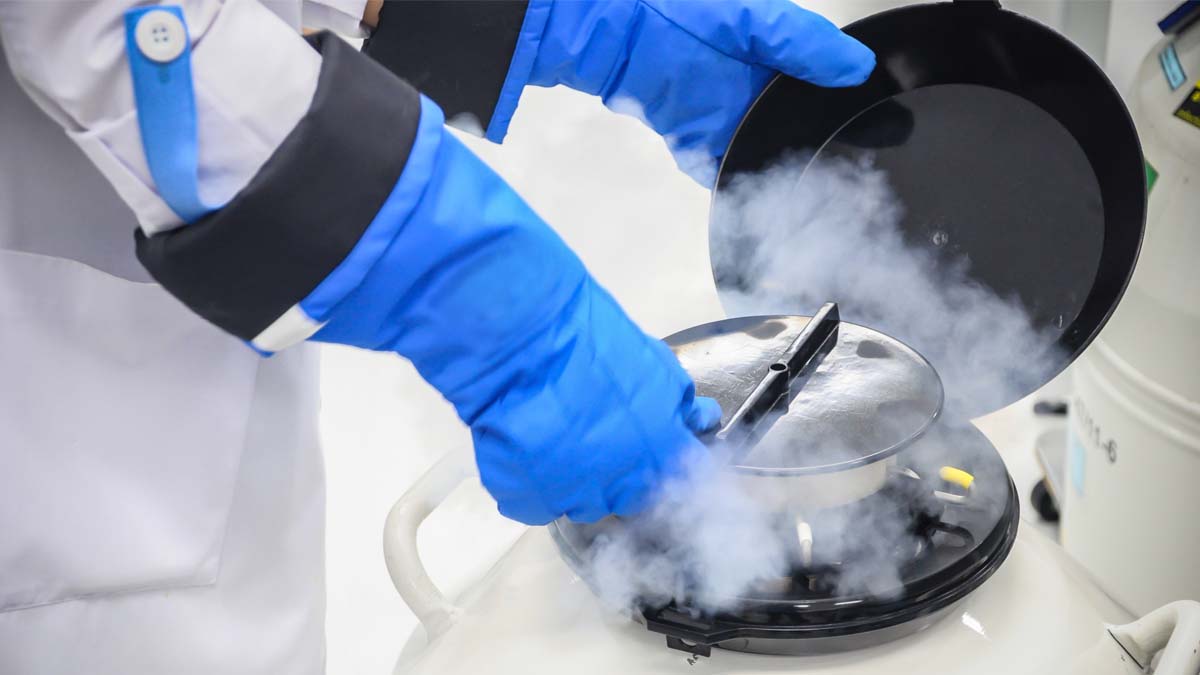Tick. Tick. Tick. The biological clock is an alarming, continuous ghost that haunts many women who want to have children, especially those who are sailing through the business world and other priorities well into their 30s.
The clock is an ominous reference to the fact that the number of viable eggs that women produce declines – rapidly for some – as they age. However, medical advances have helped women turn back their biological clocks; in fact, there is an uptick in the number of women who want to preserve their fertility by freezing viable eggs.
“Over the last two years, I have had more and more consults for fertility preservation and more specifically for egg freezing for females,” said Dr. Jeris Cox, owner of Adore Fertility in Mount Pleasant.
She attributed this uptick to the easier access to women’s health information and the fact that social media has created a more comfortable space for women to talk about their fertility journeys.
“In addition, more celebrities have opened up about their fertility journeys, egg freezing and even some potential regrets. This has brought female fertility into the spotlight and allowed more women to take control of their own health long term,” Dr. Cox explained.
Women are born with a finite number of eggs – they will not make more. They lose eggs without even knowing it and before they have had the chance to use them prior to menstruation.
Among the approximately 1 million eggs women are born with, only about 300 to 400 will be ovulated throughout a woman’s life, according to Dr. Cox.
“In our mid to late-30s, our egg pool has not only drastically decreased in size, but the stability and quality of those eggs to create life also decreases,” she added. “In the end, the younger the age of our eggs when they are used, the more likely to have success in creating a baby naturally or with preservation.”
Egg freezing is the process of harvesting eggs from a woman’s ovaries and freezing them until the woman is ready to get pregnant.
“Female fertility preservation allows a woman to take eggs that she would naturally be losing each month and save them for use later in life,” Dr. Cox noted. “These younger eggs have a much higher likelihood of creating babies because they are younger and healthier.”
As part of the two-week process, women undergo 10 days of hormone injections with fertility drugs that stimulate multiple follicles to grow in the ovaries in hopes of maturing several eggs at once. The mature eggs are then collected through a painless procedure. Once retrieved, they are flash frozen and stored at ultra-cold temperatures.
When the eggs are ready to be used, they are thawed and combined with sperm to create embryos. Any embryos that develop are then able to be implanted in the uterus.
“The age of the eggs is a very important factor for the success rate of pregnancy,” Dr. Cox said.
The cost for freezing eggs varies greatly, depending upon how many cycles a woman needs to harvest a recommended number of eggs, how many eggs are frozen and for how long. There also are costs for implantation and other treatments in the fertilization process. Ultimately, the expense can range between $15,000 and $40,000 over a period of time, according to FertilityIQ.com.
“At Adore, our costs are 50% lower than most clinics in the United States for egg freezing alone,” said Dr. Cox, noting that she empathizes with women who must shoulder the burden of expenses.
“When I went through this process when I was in the Army, during 60-hour work weeks in my mid-30s, I was fortunate to have military health care help with some costs,” Dr. Cox added. “With that said, I realize even for me as a physician how expensive the costs were, and it’s hard to not feel that it is unfair and unbalanced compared to how easy it can be for a man to preserve his fertility. There are some gender inequalities we cannot change.”
This fertilization process, like others, does not come with a 100% guarantee of a future baby, another reason many women decide not to do it.
“Fertility does require many, many things to align,” said Dr. Cox adding that among the aligning factors are “normal anatomy for sperm and egg to meet” and “open fallopian tubes and a healthy uterus.”
“Egg health is most effected by the age of the female, “Dr. Cox said. “However, heavy drinking, smoking and drugs, weight extremes or certain medical conditions or medications can affect a women’s egg reserve in the sense that we can damage our eggs and thus lose more at a higher rate than expected.”
Ultimately, when it comes to a woman’s decision about her future, knowledge is power. The goal is to ensure that women who want to have children have the information they need to set themselves up for success, Dr. Cox noted: “And, hopefully, women will have more talks about their fertility health and preservation in general.”
With more discussion about fertility health and preservation, the tick, tick, tick of a woman’s biological clock should be less haunting.
By Theresa Stratford







